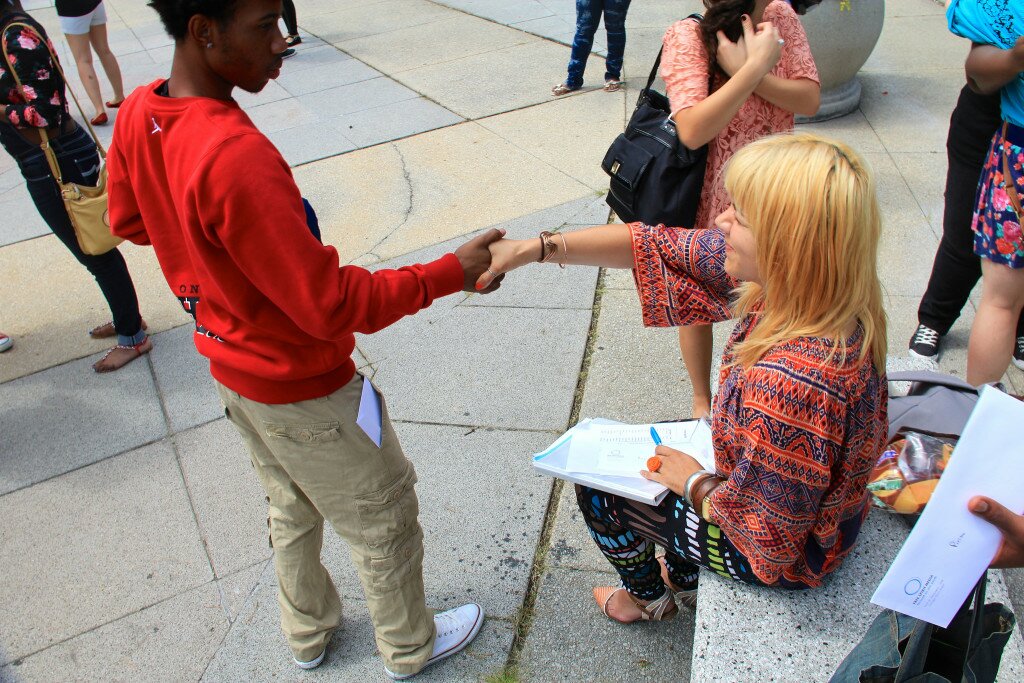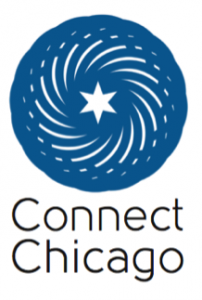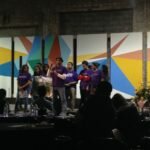In recognition of National Mentoring Month, we want to highlight the value of Arts Infusion teaching artists as role models and mentors for the 750+ teens (and a growing number of young adults) who overwhelmingly rated them 9 (on a 10-point scale) in the recent 5-year evaluation of the programs.
 The federal Office of Juvenile Justice and Delinquency Prevention (OJJDP) identified the lack of positive adult mentors as a root cause of delinquency, dating back to research conducted in the 1980s and 90s, and routinely offers federal funding for mentoring programs that totaled $90 million in 2015.
The federal Office of Juvenile Justice and Delinquency Prevention (OJJDP) identified the lack of positive adult mentors as a root cause of delinquency, dating back to research conducted in the 1980s and 90s, and routinely offers federal funding for mentoring programs that totaled $90 million in 2015.
Well-known providers, such as the century-old Big Brothers/Big Sisters and other national organizations receive most of this grant money, as reflected in the funding history. These programs are cited by OJJDP as best practices because the model is scalable, replicable, and evidenced-based; in other words, it works for large numbers of children across the country.
The standard model is often not effective for System-involved teens who vote with their feet. We designed the Arts Infusion Initiative for them. They are too old, too wary, and much more likely to have sought out the kind of validation and protection that gangs can provide.
It takes a special kind of mentor to reach this small, but highly-vulnerable and disruptive segment. They are less likely to be attending school regularly, and consequently, excluded from traditional after-school offerings. They are more likely to be incarcerated or transient; shifting from foster homes to group homes, couch-surfing, or homeless.
The kind of mentor who can reach these teens cannot be put in place through computer matching. Relationships must evolve out of common interests. Although athletic coaches are frequently cited as effective mentors, arts instructors are seldom acknowledged for the mentoring relationships that are a hallmark of their craft.
In their evaluation of Arts Infusion, the Urban Institute interviewed participants, both while incarcerated and in community-based arts programs, finding that the relationship with the specific teaching artist-instructor was rated as a top priority. The deep connection between the teaching artist and the students accounts for the proven gains in social and emotional learning, along with the artistic and technical skills.
The evaluators reviewed data about this elite group of arts educators, documenting that more than half (52%) have been teaching for over 10 years, while another 12% have taught for 6-10 years. Nearly half (46%) have a graduate degree while another 36% have graduated from college.
Further, nearly two thirds (64%) said they had been helping justice-involved or at-risk youth—either directly or indirectly—for more than 5 years; 36% had been doing so more than 10 years. The level of retention among Arts Infusion teaching artists across the five years of the initiative is impressive. Three quarters of the teaching artists responding to the stakeholder survey had been involved in the initiative for three (17%), four (25%), or five (33%) years.
This longevity, combined with the relevant cultural backgrounds of most of the arts instructors affords the consistency and familiarity teens need to form bonds and develop mentorships.
In addition to paying tribute to these extraordinary individuals, one final bit of data is worth sharing— they are woefully underpaid. The overwhelming majority are hourly employees, often teaching for more than one nonprofit or agency and/or in multiple locations. The median wage is less than $45 per hour with no benefits. Even more common is the commitment they demonstrate through countless unpaid hours preparing for teen shows, creating session guides or unit plans, and completing assessment rubrics. This is because they don’t fit the traditional funders’ definition of a mentor, so that $90 million from OJJDP is just one of many grant sources for which they are ineligible.
In my work at Smart Chicago, we are looking for new models for convening and supporting these essential professionals, both the veteran instructors and the next generation of apprentices who are following in their footsteps.






